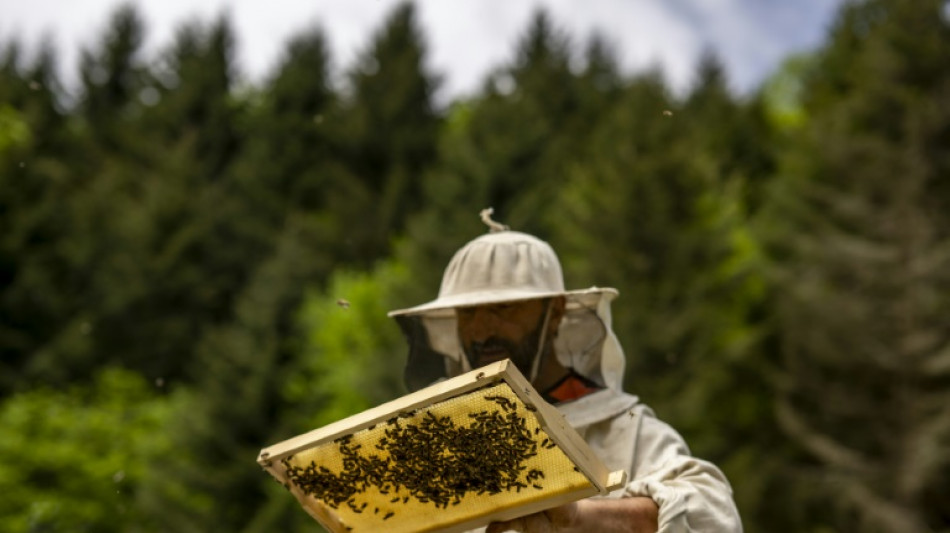
-
 Munich's surfers stunned after famed river wave vanishes
Munich's surfers stunned after famed river wave vanishes
-
Iran commemorates storming of US embassy with missile replicas, fake coffins

-
 Gauff sweeps Paolini aside to revitalise WTA Finals defence
Gauff sweeps Paolini aside to revitalise WTA Finals defence
-
Shein vows to cooperate with France in probe over childlike sex dolls

-
 Young leftist Mamdani on track to win NY vote, shaking up US politics
Young leftist Mamdani on track to win NY vote, shaking up US politics
-
US government shutdown ties record for longest in history

-
 King Tut's collection displayed for first time at Egypt's grand museum
King Tut's collection displayed for first time at Egypt's grand museum
-
Typhoon flooding kills over 40, strands thousands in central Philippines

-
 Trent mural defaced ahead of Liverpool return
Trent mural defaced ahead of Liverpool return
-
Sabalenka to face Kyrgios in 'Battle of Sexes' on December 28

-
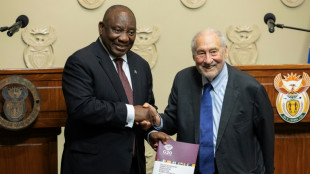 Experts call for global panel to tackle 'inequality crisis'
Experts call for global panel to tackle 'inequality crisis'
-
Backed by Brussels, Zelensky urges Orban to drop veto on EU bid

-
 After ECHR ruling, Turkey opposition urges pro-Kurd leader's release
After ECHR ruling, Turkey opposition urges pro-Kurd leader's release
-
UK far-right activist Robinson cleared of terror offence over phone access

-
 World on track to dangerous warming as emissions hit record high: UN
World on track to dangerous warming as emissions hit record high: UN
-
Nvidia, Deutsche Telekom unveil 1-bn-euro AI industrial hub

-
 Which record? Haaland warns he can get even better
Which record? Haaland warns he can get even better
-
Football star David Beckham hails knighthood as 'proudest moment'

-
 Laurent Mauvignier wins France's top literary award for family saga
Laurent Mauvignier wins France's top literary award for family saga
-
Indian Sikh pilgrims enter Pakistan, first major crossing since May conflict

-
 Former US vice president Dick Cheney dies at 84
Former US vice president Dick Cheney dies at 84
-
Fiorentina sack Pioli after winless start in Serie A

-
 Oscar-winning Palestinian films daily 'Israeli impunity' in West Bank
Oscar-winning Palestinian films daily 'Israeli impunity' in West Bank
-
Spain's Telefonica shares drop on dividend cut, net loss

-
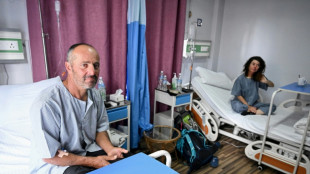 Fierce mountain storms kill nine in Nepal
Fierce mountain storms kill nine in Nepal
-
Divisive Czech cardinal Dominik Duka dies at 82
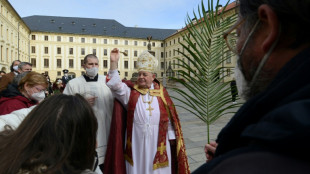
-
 Shein vows to cooperate with France in sex doll probe
Shein vows to cooperate with France in sex doll probe
-
EU in last-ditch push to seal climate targets before COP30

-
 Finnish ex-PM Marin says her female cabinet faced torrent of sexism
Finnish ex-PM Marin says her female cabinet faced torrent of sexism
-
Sudan army-backed council to meet on US truce proposal: govt source
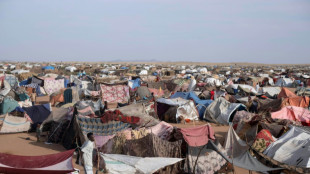
-
 BP profit surges despite lower oil prices
BP profit surges despite lower oil prices
-
Shein vows to cooperate with France in childlike sex doll probe

-
 National hero proposal for Indonesia's Suharto sparks backlash
National hero proposal for Indonesia's Suharto sparks backlash
-
Indian great Ashwin out of Australia's BBL after knee surgery

-
 Indian Sikh pilgrims enter Pakistan, first major crossing since May conflict: AFP
Indian Sikh pilgrims enter Pakistan, first major crossing since May conflict: AFP
-
Asian markets slip as traders eye tech rally, US rate outlook
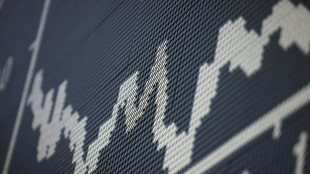
-
 Nintendo hikes Switch 2 annual unit sales target
Nintendo hikes Switch 2 annual unit sales target
-
Typhoon flooding kills 5, strands thousands in central Philippines

-
 Jobe Bellingham finding his feet as Dortmund head to City
Jobe Bellingham finding his feet as Dortmund head to City
-
US civil trial to hear opening arguments on Boeing MAX crash

-
 Jamie Melham on Half Yours only second woman to win Melbourne Cup
Jamie Melham on Half Yours only second woman to win Melbourne Cup
-
Myanmar scam hub sweep triggers fraudster recruitment rush

-
 Biggest emitter, record renewables: China's climate scorecard
Biggest emitter, record renewables: China's climate scorecard
-
Floods strand people on roofs as typhoon pounds Philippines

-
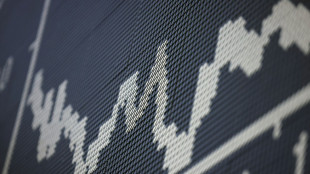 Asian markets swing as trades eye tech rally, US rate outlook
Asian markets swing as trades eye tech rally, US rate outlook
-
South Korea to triple AI spending, boost defence budget

-
 Trott to leave as Afghanistan coach after T20 World Cup
Trott to leave as Afghanistan coach after T20 World Cup
-
Late queen's fashion to go on show at Buckingham Palace
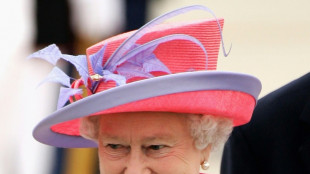
-
 In Morocco, exiled Afghan women footballers find hope on the pitch
In Morocco, exiled Afghan women footballers find hope on the pitch
-
EU scrambles to seal climate deal ahead of COP30
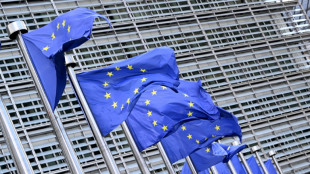

Turkey's 'mad honey' aphrodisiac that can knock you flat
Its fans swear it can cure heart palpitations, dodgy stomachs and even impotence. Yet every year hundreds of people end up in hospital after gorging themselves on Turkey's "mad honey".
But beekeeper Bayram Demirciler is adamant the honey his bees make high in the mountains above the Black Sea "has never caused any problems".
In good years his hives in the province of Rize in northeast Turkey produce up to 350 kilos of "mad" rhododendron honey.
The lush green Pontic Alps is home to a subspecies of rhododendron whose purple flowers drip with pollen that give "mad honey" its colour. They also contain a neurotoxin called grayanotoxin which can slow the heartbeat and that also packs a hallucinogenic punch.
"This honey is very good for people with hypertension," said Mustafa Oguz Alparslan, whose hives -- protected from sweet-toothed bears by an electric fence -- are even higher up the mountains at 1,400 metres (4,600 feet).
But eat too much and "it can also cause a rapid fall in blood pressure", warned the beekeeper, who said he always "tests his honey as it takes it out the hive".
- Knocked out a bear -
Doctors -- who recognise its virtues in small homoeopathic doses -- say the honey can slow the flow of blood to the brain, causing dizziness, fainting and even hallucinations.
Intoxication with "mad honey" was even documented in ancient times.
The Greek historian Strabo, who was born in the Black Sea region, said three of Pompey's Roman cohorts were put out of action by allies of the Pontian king Mithridates who left "pots of mad honey" in their path.
And it also figured in Agatha Christie's novel, "A Haunting in Venice", filmed last year by Kenneth Branagh.
The "Queen of Crime" -- who wrote part of "Murder on the Orient Express" in Istanbul -- had Rowena Drake kill her own daughter with it and even used it to give Belgian detective Hercule Poirot visions.
The honey can even put beasts on their back. A young brown bear made headlines in August 2022 when he was found unconscious near hives in Duzce province at the other end of Turkey's Black Sea. It had keeled over after overindulging on "mad honey", according to the ministry of forestry and agriculture.
The same month a bus driver travelling between Rize and the port city of Trabzon blamed the honey for him passing out and crashing into cars at a traffic light.
In his hospital in Trabzon, Professor Abdulkadir Gunduz treats between "30 and 100" people who have been knocked sideways by the honey in bad years.
The doctor said it was "possible that there are thousands of cases" across the wider region.
"If we have a sunny May and June, the bees will feast on the rhododendrons," making the honey even stronger, said Professor Gunduz, who has long researched the subject.
One particular detail pricked his interest. "More than 80 percent of the intoxicated patients are men over 50. Some believe (the honey) ups their sexual performance," he said.
- 'Almost died for nothing' -
In his shop in Cayeli, 20 kilometres from Rize, Necmettin Colak recommends his customers "take a soup spoon of the honey on an empty stomach".
For more mature clients in search of a sexual pick-me-up, he advises his chestnut honey instead, which he swears is "more efficient".
He stores his "mad honey" for several months to allow its more problematic attributes to dissipate before tasting it himself and selling it at 55 euros a kilo.
But not everyone takes such precautions. Alaattin Demirci, from Trabzon province, had to be taken to hospital after eating some "mad honey" in January 2021.
A few days later the sixtysomething posted photos of himself on Facebook on a drip, insisting that he would "never again" try it, saying he "almost died for nothing".
D.Schlegel--VB




